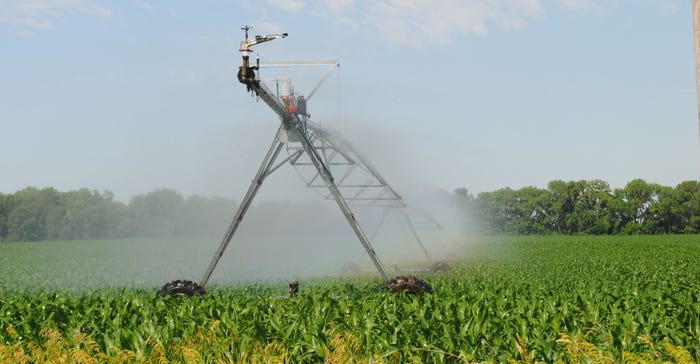
Nebraska is rich with water. In today’s world, where a water crisis is a major source of global conflict, that makes the state’s resource doubly important.
“Nebraska is located in the third-largest watershed in the world,” John Winkler, general manager at the Papio Missouri River Natural Resources District, told ranchers at the Sandhills Cattle Association convention held recently in Valentine. “Water is the new oil; there is no doubt about it.”
The Papio Missouri River NRD is involved with building and maintaining river levees protecting crucial national security assets like the Offutt Air Force Base near Omaha. Because of this, Winkler was appointed by then-U.S. Secretary of the Air Force Deborah Lee James and the Department of Defense to attend the National Security Forum at the Air War College at Maxwell AFB in Alabama.
The experience of sitting at the table with military personnel and security policymakers from around the world opened Winkler’s eyes on the value of each drop of water. It also made him think about where Nebraska fits into the global picture.
“If you can go to your faucet and turn on the water, you are better off than two-thirds of the world’s population,” Winkler said. “Where there is water scarcity, that equals food scarcity,” he said. “Where there is food scarcity, that equals migration away from that location, which equals conflict.”
That’s why water overuse is considered by international military and policy leaders as the biggest threat to global security, he said.
“We in Nebraska take water for granted,” Winkler said. “We are the irrigation leader and have plenty of water resources.”
Scarcity and social unrest
Winkler cited numerous examples of how water and food scarcity have been leading factors in almost every place of social unrest and conflict around the globe, although these factors have been underreported.
“Everyone is concerned about water,” he said. “There is either too much or not enough. In the U.S., floods are the most frequent national disaster.”
Lack of water and therefore, the ability to produce food, is just as concerning. “The U.S. is the only country in the world that produces enough food right now to feed the population without importing food. That’s a huge global advantage,” Winkler said. “However, by 2025, it is projected that this will no longer be the case, so we will lose that advantage.”
Water catastrophes are expected by 2050 for the Middle East, China, India and the Western U.S.
“Complacency is the greatest threat to our country and to the world,” Winkler noted.
With its water resources, Nebraska is in an enviable position, compared to other states, he said. Looking at current global conflicts, migration will originate from areas without enough water and food to places that do.
To combat complacency, Winkler advised to proactively prepare and manage resources carefully down the road. “What if we had several years of drought in a row like California?” he asked. These are the types of concerns that should spur Nebraskans to take great care in water use, he said.
Technology can help
Technology leads the way in wise water management. Nebraska center-pivot irrigation systems and the move to subsurface drip irrigation are examples of water saving technologies, Winkler said, as well as “precision agriculture, which incorporates soil moisture sensors and nutrient management technology.”
“Our use of super computers and high-tech computer models to perform state-of-the-art predictive water usage and water balances, and using modern technology to predict the interaction between surface and groundwater help us to actually devise a strategy to determine the best management practices during drought and floods,” Winkler said. “We can also model the extents of our aquifers to determine volume and quality of water.
“The Nebraska system of water management is truly the gold standard in resource management,” Winkler said. “Nebraska water law, hybrid seeds, well metering, irrigation efficiencies, conjunctive management, coordination of state and local water efforts, aquifer mapping, flood control, drought mitigation, and modern farming and ranching practices are all examples of the Nebraska way.”
Winkler said that events in other parts of the world, whether it is in the Middle East, Africa, Asia or Russia, all have a direct and profound impact on the U.S. and Nebraska. “If it is immigration, trade or conflict and war, the world has never been smaller and our role as Nebraskans has never been bigger in it.”
Winkler spoke, along with Chuck Schroeder, founding executive director of the Rural Futures Institute, at the morning sessions of the 79th annual SCA convention and trade show at the Cherry County Fairgrounds. Along with the speakers, ranchers participated in a pen-of-three cattle show and a membership meeting and election of new directors for the SCA board. Learn more at sandhillscattle.com.
About the Author(s)
You May Also Like






